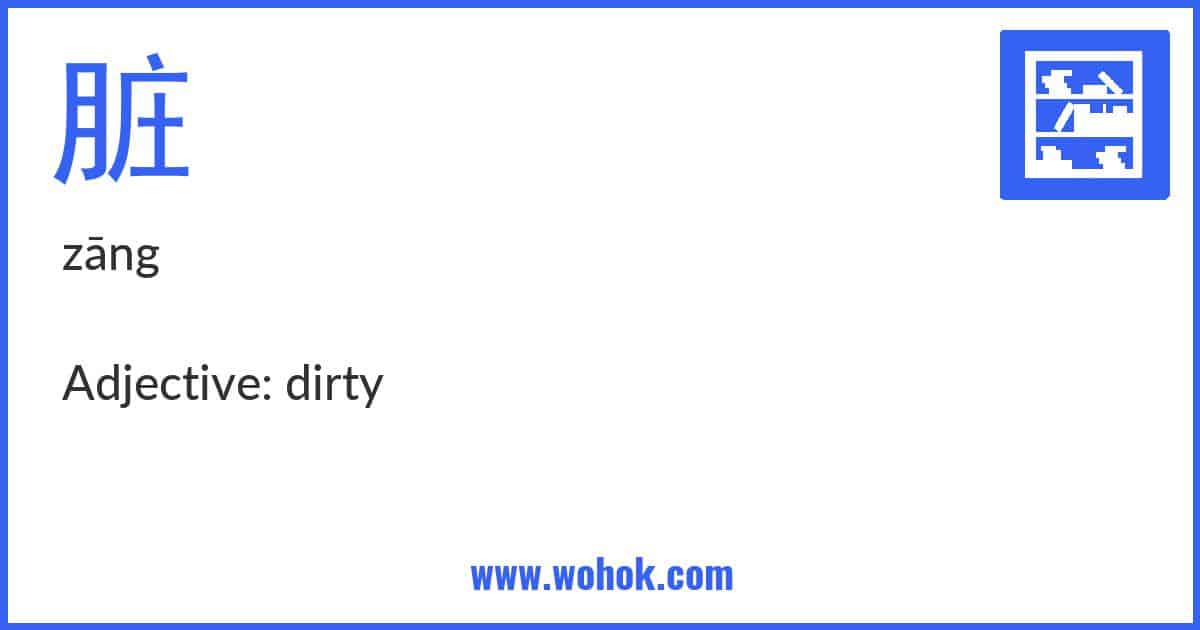The Chinese word 脏 means “dirty” or “unclean”. It is commonly used to describe something that is not clean or hygienic, such as dirty clothes or a dirty room. It can also be used figuratively to describe something that is morally or ethically corrupt. For example, someone might say “这个地方很脏” to mean “this place is very dirty”.
Translation
Adjective: dirty
Pronunciation
Example Sentences
| Chinese | Pinyin | Engish |
|---|---|---|
| 这个厕所非常脏 | zhè gè cèsuǒ fēicháng zāng | This toilet is very dirty |
| 他的手很脏,你要给他洗手 | tā de shǒu hěn zāng, nǐ yào gěi tā xǐ shǒu | His hands are dirty, you need to wash them for him |
| 我不喜欢在脏的地方吃饭 | wǒ bù xǐhuān zài zāng de dìfāng chīfàn | I don’t like to eat in dirty places |
| 这个衣服已经脏了很久了 | zhège yīfú yǐjīng zāng le hěnjiǔ le | This shirt has been dirty for a long time |
| 他的房间很脏乱,需要打扫 | tā de fángjiān hěn zāngluàn, xūyào dǎsǎo | His room is very dirty and messy, it needs to be cleaned |
| 这个工作需要你处理脏数据 | zhège gōngzuò xūyào nǐ chǔlǐ zāng shùjù | This job requires you to handle dirty data |
| 脏衣服放在洗衣机里 | zāng yīfú fàng zài xǐyījī lǐ | Put the dirty clothes in the washing machine |
| 厨房很脏,需要清理 | chúfáng hěn zāng, xūyào qīnglǐ | The kitchen is dirty and needs to be cleaned |
HSK
脏 is part of HSK Level 4 in HSK 2.0. In the newer HSK 3.0 it is part of HSK Level 2.
Learning Card


